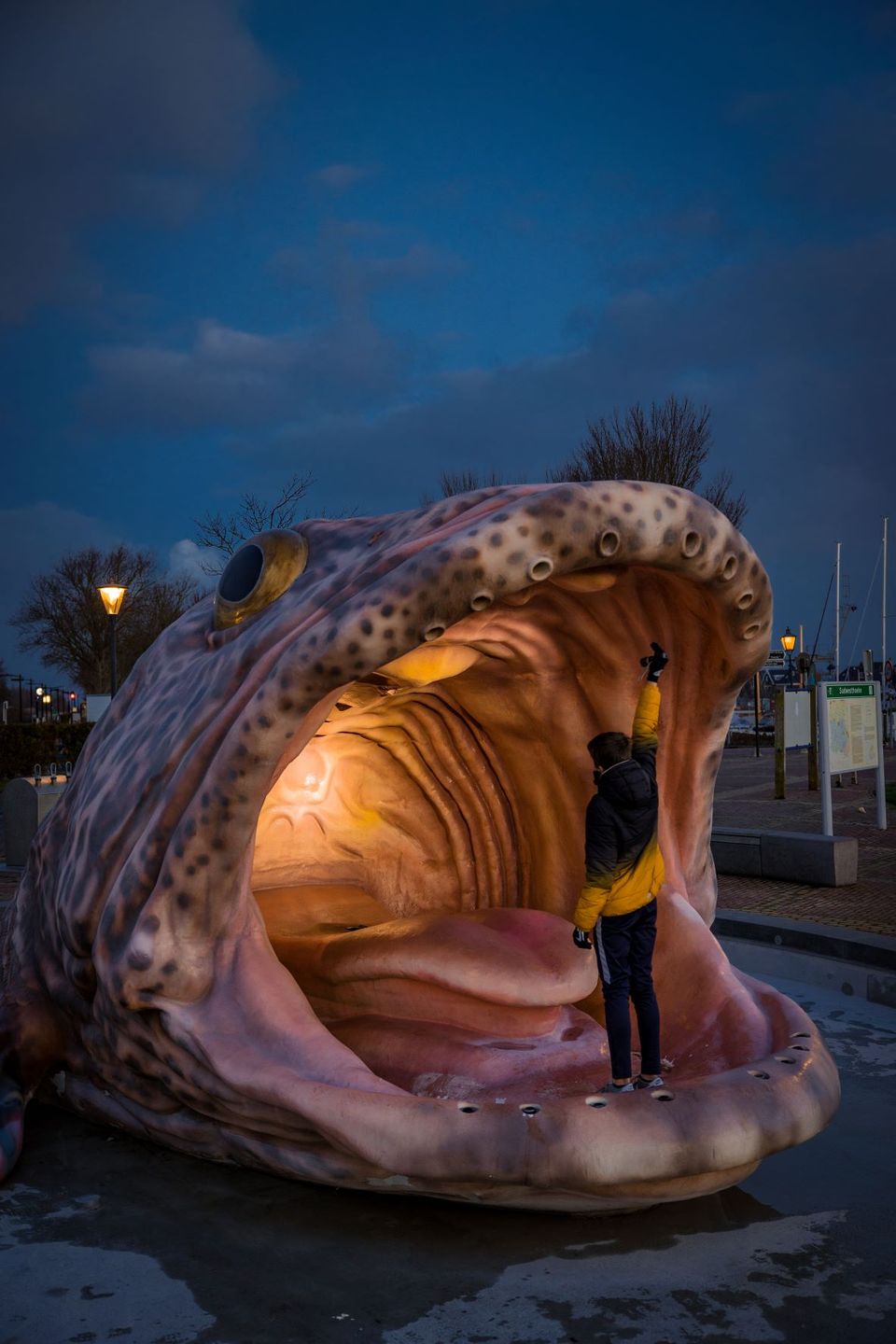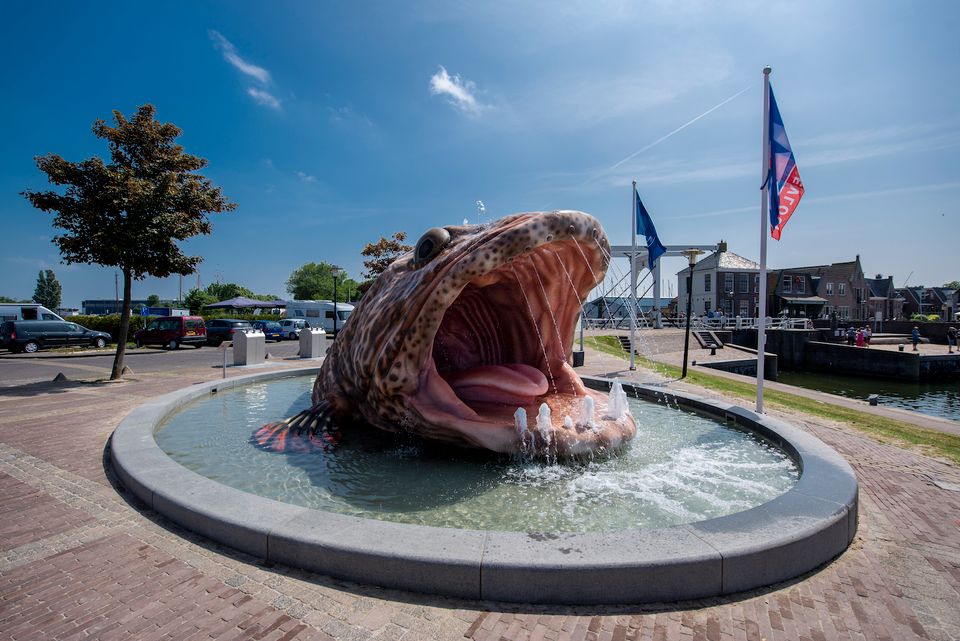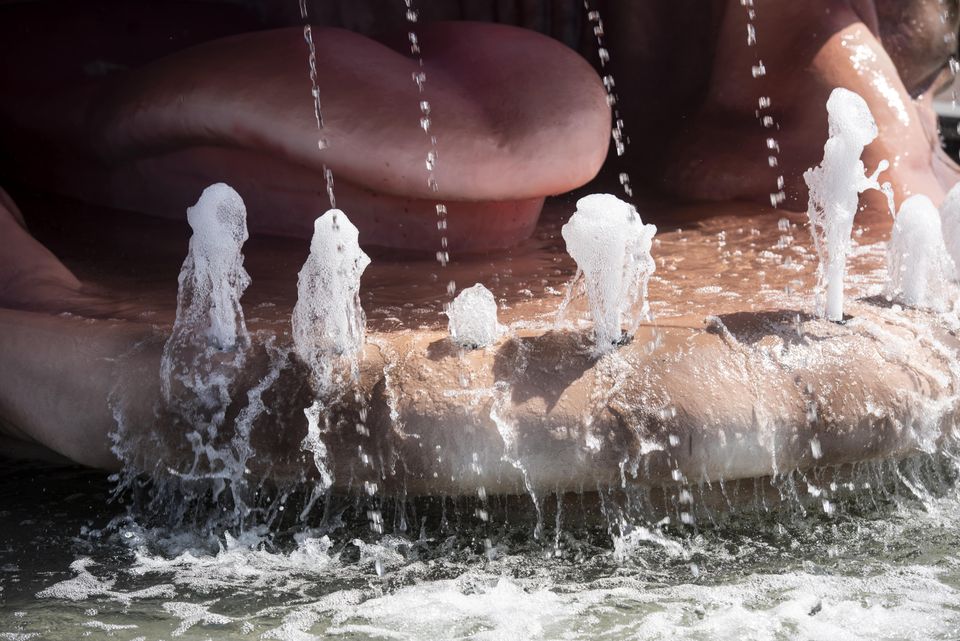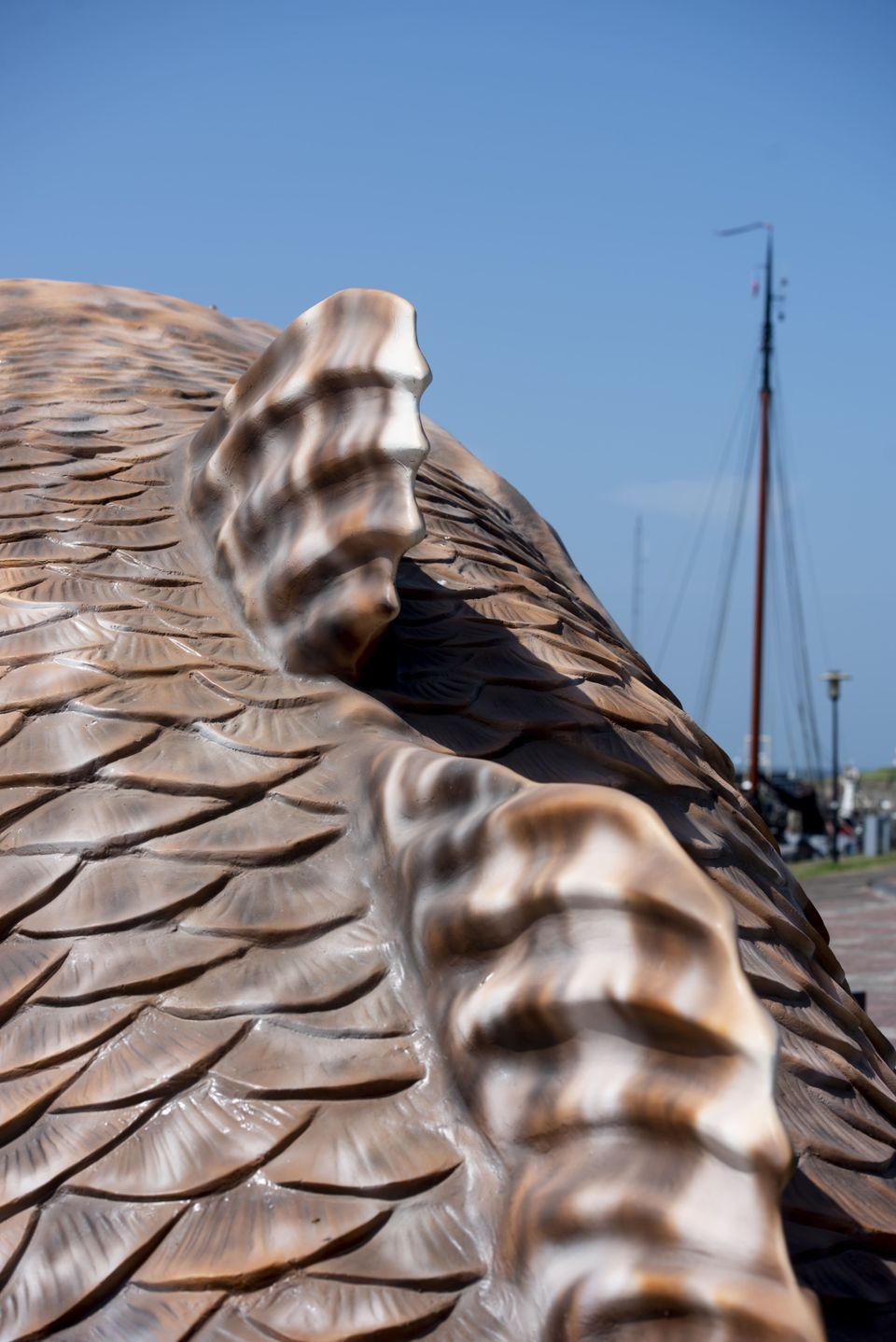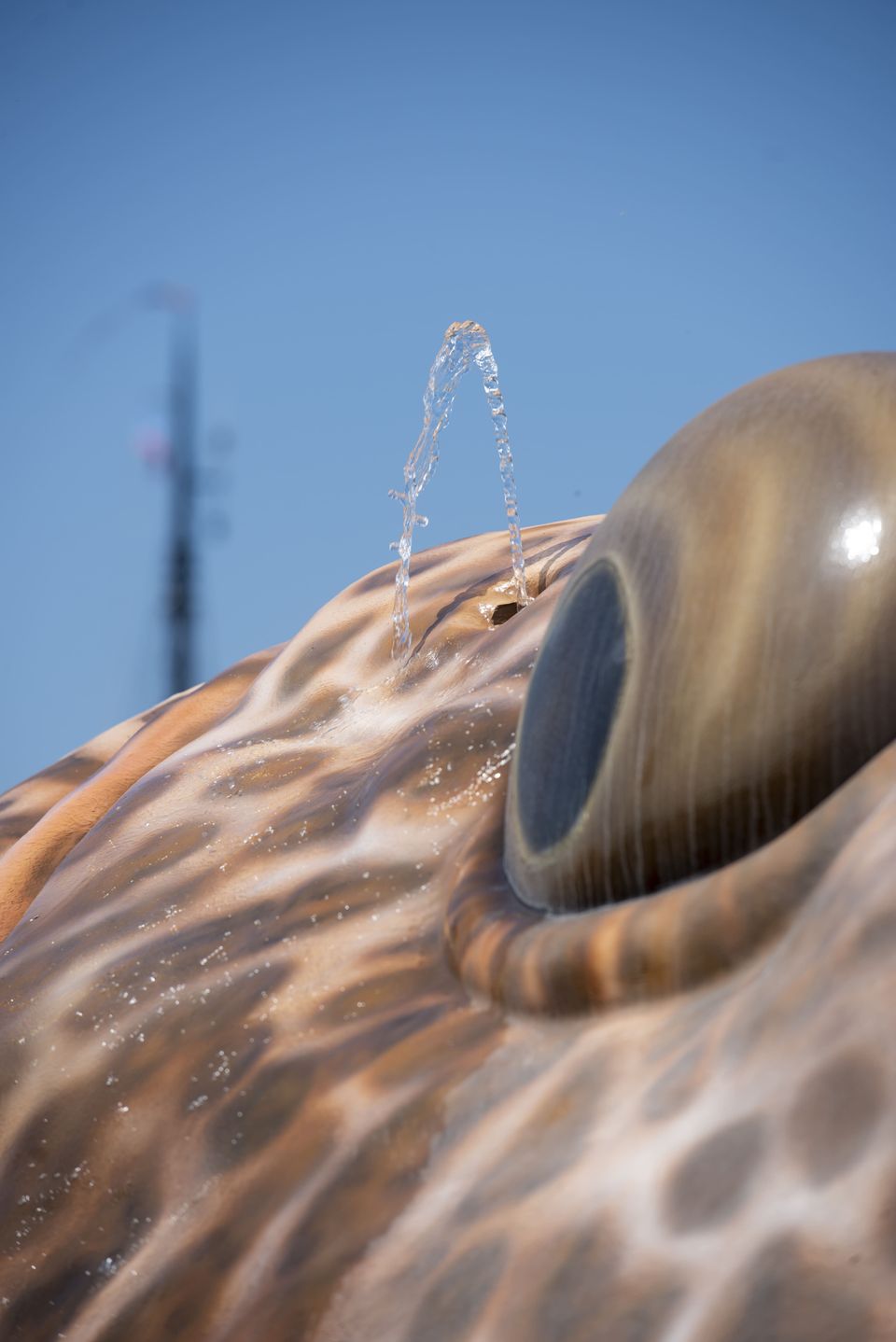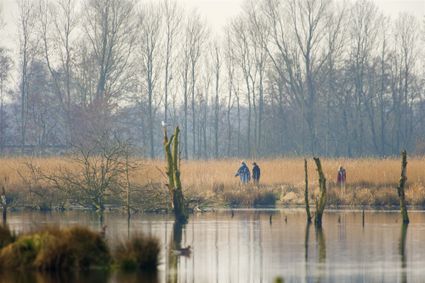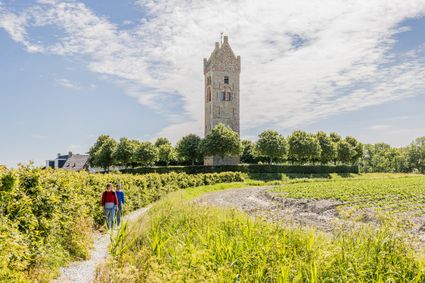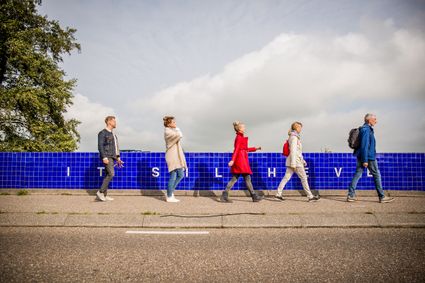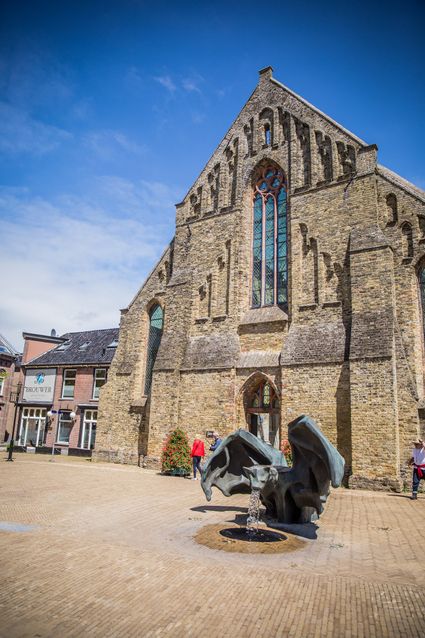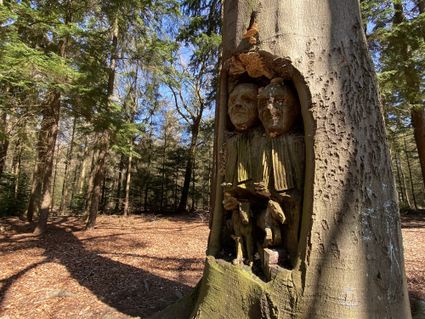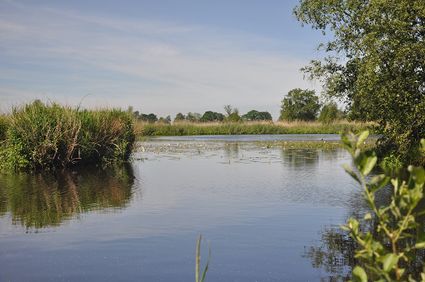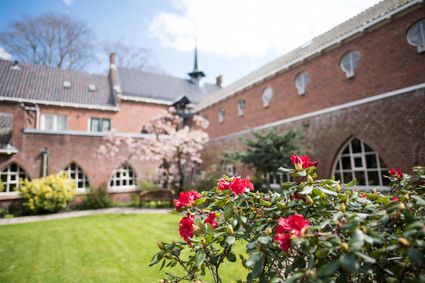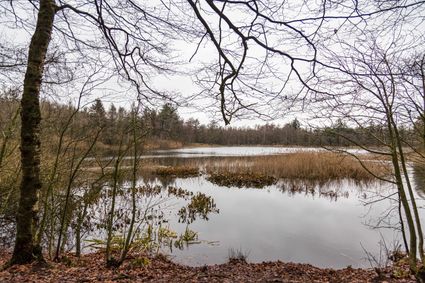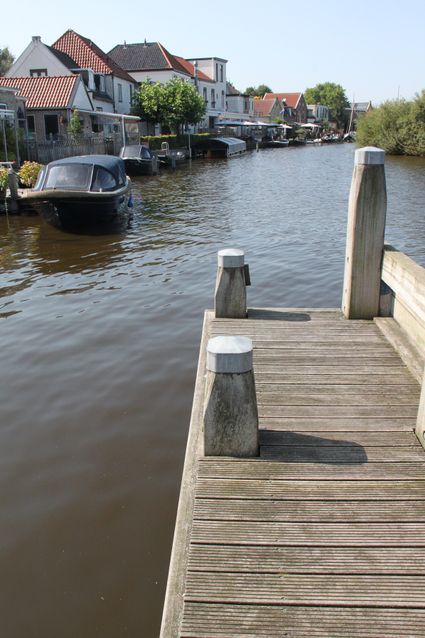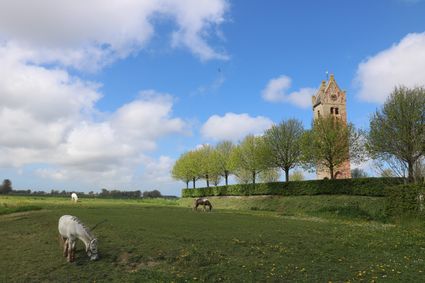Walking tour 11fountains: Stavoren
About the city walk
In the water sports season, Stavoren brims with liveliness. In its harbour, the boats are moored in rows and visitors take a stroll over the dike and promenade, while enjoying a cone of ice cream. Stavoren used to be a prosperous city, thanks to the sea trade. From its harbour, ships sailed to Sweden, Norway and England. It was an important place.
Nowadays you can take the ferry to Enkhuizen from March to October. Ideal for cycling holidays, because you can take your bike with you! These days, however, there isn’t much left of Stavoren’s former prosperity, because the town suffered from floods and often fell into poverty. This is also the subject of the saga of The Lady of Stavoren, of which you will learn more during this 25-minute walking route.
Easy navigation?
Vi…
About the city walk
In the water sports season, Stavoren brims with liveliness. In its harbour, the boats are moored in rows and visitors take a stroll over the dike and promenade, while enjoying a cone of ice cream. Stavoren used to be a prosperous city, thanks to the sea trade. From its harbour, ships sailed to Sweden, Norway and England. It was an important place.
Nowadays you can take the ferry to Enkhuizen from March to October. Ideal for cycling holidays, because you can take your bike with you! These days, however, there isn’t much left of Stavoren’s former prosperity, because the town suffered from floods and often fell into poverty. This is also the subject of the saga of The Lady of Stavoren, of which you will learn more during this 25-minute walking route.
Easy navigation?
View the route in Google Maps
Addition to Google Maps route
From the bulwark, follow the dyke path and turn into the alley adjacent to Burgemeester Albertstraat. From here you can follow the Google Maps route again.
About the fountain
The sea gives, the sea takes. Stavoren, once a wealthy Hansa town, knows all about it. Floods, trade wars, a port that silted up: on several occasions, the city fell into poverty. But each time it recovered and shipping and fishing brought new prosperity. Folk tales such as ‘the Lady of Stavoren’ tell of that precarious fate. ‘The Fish for Stavoren’ adds a new story, with a wink to a symbolic drawing by Pieter Bruegel the Elder: ‘Big Fish Eat Little Fish!’ The massive open mouth of a mighty fish lures us inside along its water spouting lips. Who will have a lucky escape in Stavoren?
Sights on this route
11Fountains Stavoren
The sea gives, the sea takes. Stavoren, once a rich Hanseatic city, has much to say on this subject. Floods, maritime trade wars, a port that silted up: the city fell into poverty several times.
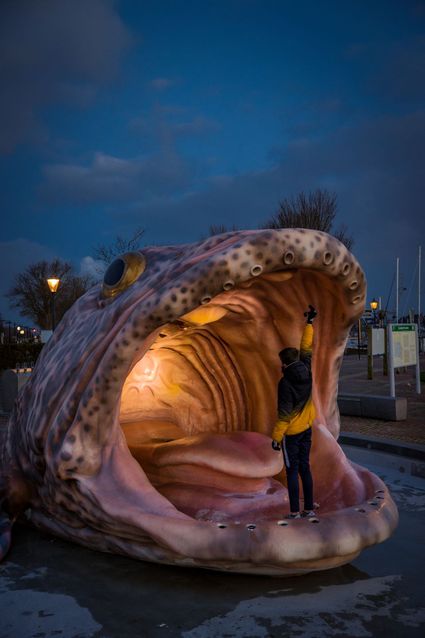
Friese Vloot
An active vacation, a relaxing weekend, chill out and unwind together; everything is possible with FrieseVloot. FrieseVloot is a cooperative consisting of a number of enthusiastic skippers with traditional sailing ships. No-nonsense quality, interact...
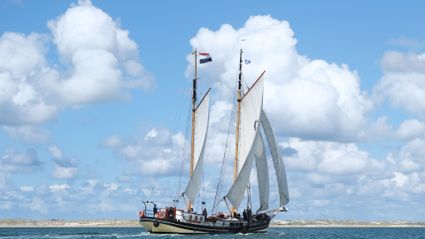
The Lady of Stavoren
From the 15th century on, the flourishing Hanseatic city of Stavoren began to fall upon bad times. It is this period in history that is related in the saga of the Lady of Stavoren. In the saga, all aspects of Stavoren as a trading city are covered.
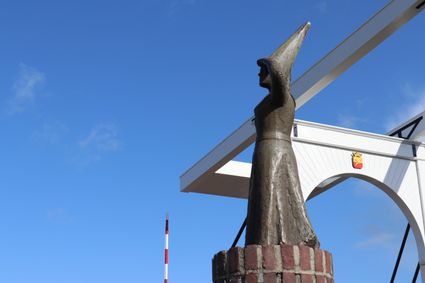
The harbour of Stavoren
Experience the atmosphere of trade, fishing and recreational sailing. Stavoren is uniquely situated, as it is surrounded by the IJsselmeer lake on three sides.
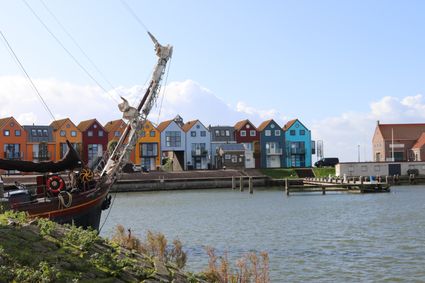
The Blokhuis
After 1525, Friesland became part of the kingdom of Charles V, who had a large fortress built at Stavoren harbour in order to keep the Frisian people under control. It stood here until around 1580.
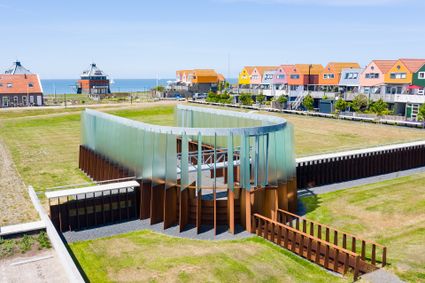
Brouwershûs
For rent in the southwest corner of Friesland a 6 persons holiday cottage. Central situated at the ijsselmeer and you can start here for many nice excursions. Stavoren is one of the Frisian elf-towns. Has is own train station and during the period Ap...
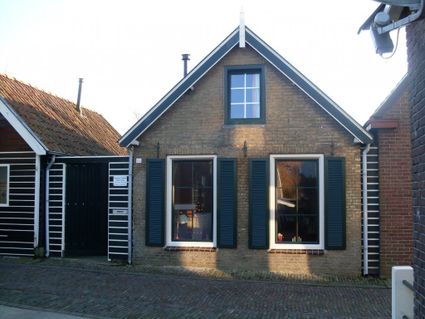
Museum 't Ponthús
Here the time line of the famous Stavoren stories is brought to life. Why was Stavoren a target for the Vikings? And how about the trading relationship with Hamburg? Or read more about the story of the emergency landing of the Halifax V during the Second
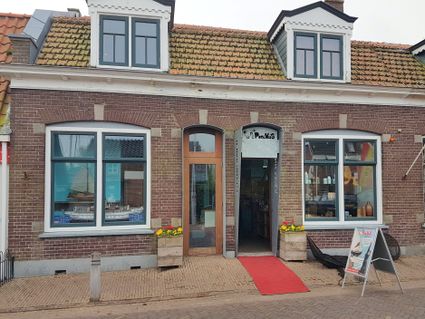
Hanzehuis Apartments
Feel at home in Friesland! Apartments with one or two bedrooms, a bathroom and living room with kitchen.
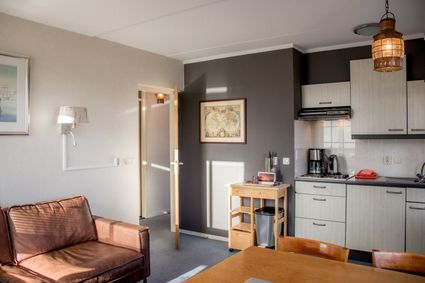
11Fountains Stavoren
The sea gives, the sea takes. Stavoren, once a rich Hanseatic city, has much to say on this subject. Floods, maritime trade wars, a port that silted up: the city fell into poverty several times.

Directions
11Fountains Stavoren
The sea gives, the sea takes. Stavoren, once a rich Hanseatic city, has much to say on this subject. Floods, maritime trade wars, a port that silted up: the city fell into poverty several times.

We start this route at the boisterous spouting Fish Fountain, that refers to times of abundance, but also to times of flooding. Both were common in Stavoren. Nevertheless, it is a cheerful fountain and children love to play in it on hot days. In the mouth of the fish you will be dry, but try to get in without getting wet... On the benches around the fountain, people are often relaxing and enjoying ice cream. A lovely place to start the route!
The Fish sits next to the harbour of Stavoren. This area, with the bright, colourful houses gracing the other side of the harbour, is also called ‘little Copenhagen’. In the harbour you will find both new and old ships. The old ships, the big boys at the front of the bridge, are part of the Frisian Fleet, a cooperative of enthusiastic skippers with beautiful traditional sailing ships that offer trips to anyone who wants to come along.
Now cross the old sea lock. It dates from 1576 and gives access to the city. Here you will also encounter the statue of the Lady of Stavoren. This little lady is the central figure of a local saga. In short: the Lady of Stavoren was a rich widow who was always trying to gain even more wealth. When someone warned her about her behaviour, she threw her golden ring into the sea, declaring that she was as likely to fall into poverty as she was of ever seeing the ring again. Years later, a fisherman showed her a fish that had the golden ring in its mouth. You guessed it; the little lady lost all her wealth.
As we continue our route along the quay, don’t forget to look to the left. There, you will see a small road that leads to the Blokhuis, a blockhouse (small fortification) built around 1525 by Emperor Charles V. to keep the Frisians under control. During excavations in 1996, parts of the walls and towers and many cannonballs were found. Now, on the old foundations of the blockhouse, you will find an abstract representation of the fortification.
Walk back to the harbour, and we’ll continue our way towards the IJsselmeer (Lake IJssel), passing the cheerful, modern houses. At the end of the quay, there is the pier. From here you can see the industrial harbour lights from 1884 and the cast iron lighthouse of Stavoren. At sunset, the view is stunning.
Via the grass you can now walk along the waterside of Lake IJssel. At the end of this field with modern holiday cottages, there is a small dyke. A lovely place to enjoy the fresh air and watch the sun set in the lake.
After about 300 meters you can leave the dyke via a gate on your left, and walk to the city centre via an old alley. Here, a narrow canal splits Stavoren in two parts. Walk straight ahead to get to the big canal Stadsgracht. Old boats add to the canal’s charm, and you can enjoy the diversity of the houses. Here, no two houses look the same.
At the end of this street, you will reach the inner harbour. Are there any nice boats for sale? Turn left at Buuf Jellie, follow Hellingspad (literally: ‘sloping path’) and arrive at Smidstraat. Here you will find Museum Ponthús, where you can learn about how the inhabitants of Stavoren used to live. Turn right here, at a shop that sells antique maritime items.
When you walk straight ahead, you will arrive at the old lock and the Fish of Stavoren. This is the end of the route. Enjoy an ice cream or a nice drink while listening to the loud splashing of this cheerful fountain. Cheers! All restaurants and cafés in Stavoren can be found here.
11Fountains Stavoren
The sea gives, the sea takes. Stavoren, once a rich Hanseatic city, has much to say on this subject. Floods, maritime trade wars, a port that silted up: the city fell into poverty several times.

- 61
- 32
